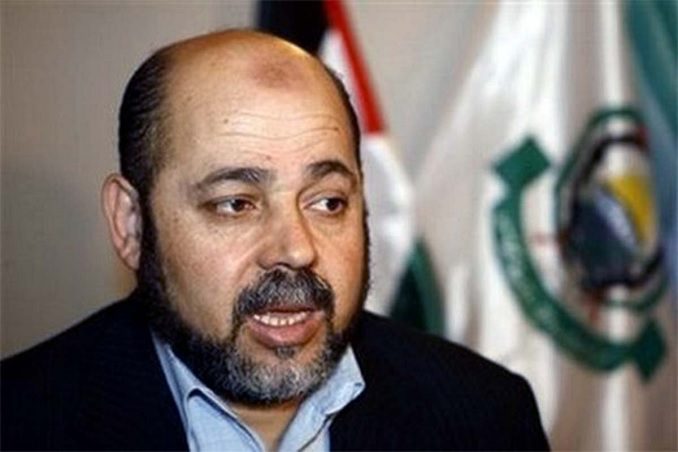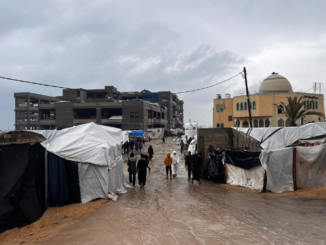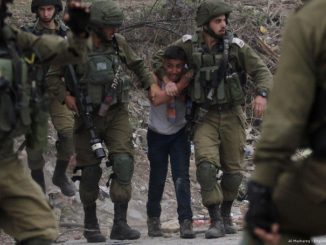
Abu Marzouk, who is currently visiting Moscow, emphasized the significance of Russia’s role if Israel’s war in Gaza were to expand.
Mousa Abu Marzouk, the Deputy Head of Hamas’ Political Bureau, conducted an exclusive interview with Al-Jazeera in Moscow, discussing various aspects of Russia’s potential involvement in the Gaza war and highlighting the movement’s perspectives on the ongoing negotiations and regional dynamics.
Abu Marzouk, who is currently visiting Moscow, emphasized the significance of Russia’s role if Israel’s war in Gaza were to expand.
He pointed to Russia’s alliances in the region, particularly with Iran, suggesting potential expanded roles for Moscow in such scenarios.
“The real war is with the United States, which supplies Tel Aviv with weapons and protects it in international forums and from sanctions,” Abu Marzouk said, noting that, therefore, “there must be a country the size of Russia standing by your side, so that the United States does not monopolize not only the Middle East region but also the international arena.”
Historical Support
Abu Marzouk acknowledged Russia’s longstanding support for Palestinian self-determination and noted its current provision of civil aid.
He suggested that Russia could play a more active role beyond its current engagement, especially given its presence in Syria and its relations with Iran.
“Russia’s political role is appreciated by us, and its position towards the Palestinian people has been clear and evident for many years,” he said.
Abu Marzouk explained that the Palestinian Resistance “manufactures its own weapons and resists the enemy itself”. If the battle expands, however, Russia “will be strongly present because it will have allies in the region,” he added.
“Moscow has a presence in Syria and has distinguished relations with Iran, and therefore Russia will have other roles than the one it is playing at the present time, and then every incident will be relevant.”
Ceasefire and International Pressure
Abu Marzouk reiterated the importance of implementing the United Nations Security Council’s resolution for a permanent ceasefire, alongside efforts for prisoner exchange and humanitarian relief for Palestinians affected by the conflict.
He also discussed internal and external factors influencing Israeli Prime Minister Netanyahu’s decisions, including political divisions within Israel and international pressure.
Israel, according to the top Hamas official, is turning “into a pariah and hated state that is not respected by anyone,” a country that “violates international and humanitarian laws”.
US-Israel Relations
The interview touched upon the strained relations between the Biden administration and Netanyahu, highlighting US commitments to Israeli security amidst political tensions.
“Washington’s policy now is to isolate Israel’s security from Netanyahu’s future,” Abu Marzouk said, adding that “Netanyahu is trying to confront these pressures, especially during the US presidential election period”.
According to the Hamas leader, Zionist lobbies play a crucial role in the upcoming elections and this weakens the US administration’s influence on Tel Aviv, along with “the Congress’s position, which is very biased towards Israel.”
International Support
Abu Marzouk highlighted the global support garnered following the Al-Aqsa Flood operation on October 7, 2023, underscoring growing international recognition of Palestinian rights amid criticisms of Israeli policies.
“To date, approximately 144 countries have recognized this right, as well as massive popular support in Europe, including non-Zionist Jews, as well as new countries joining calls against Israel at the International Court of Justice,” Abu Marzouk explained.
‘No Justice, No Peace – What Does It Mean in the Context of Gaza Genocide?
Challenges to Palestinian Unity
Criticizing the Palestinian Authority, Abu Marzouk pointed to setbacks in Moscow and Beijing regarding national reconciliation efforts, citing external pressures and internal divisions hindering progress.
The main problem, he said, is the “Palestinian Authority that is incapable and corrupt, and all these gains have come while it is dormant”.
“The position of PA President Mahmoud Abbas and the position of Fatah no longer determine their personal future, the future of the Authority, or the future of the Palestinian situation,” Abu Marzouk stated.
The interview also analyzed factors preventing widespread uprisings in the West Bank, including restrictive measures by the Palestinian Authority and security crackdowns by Israel.
Abu Marzouk speculated on the potential escalation of the conflict, Netanyahu’s strategic interests in involving the US, and the supportive role of regional allies backing Palestinian resistance efforts.
(PC, AJA)








